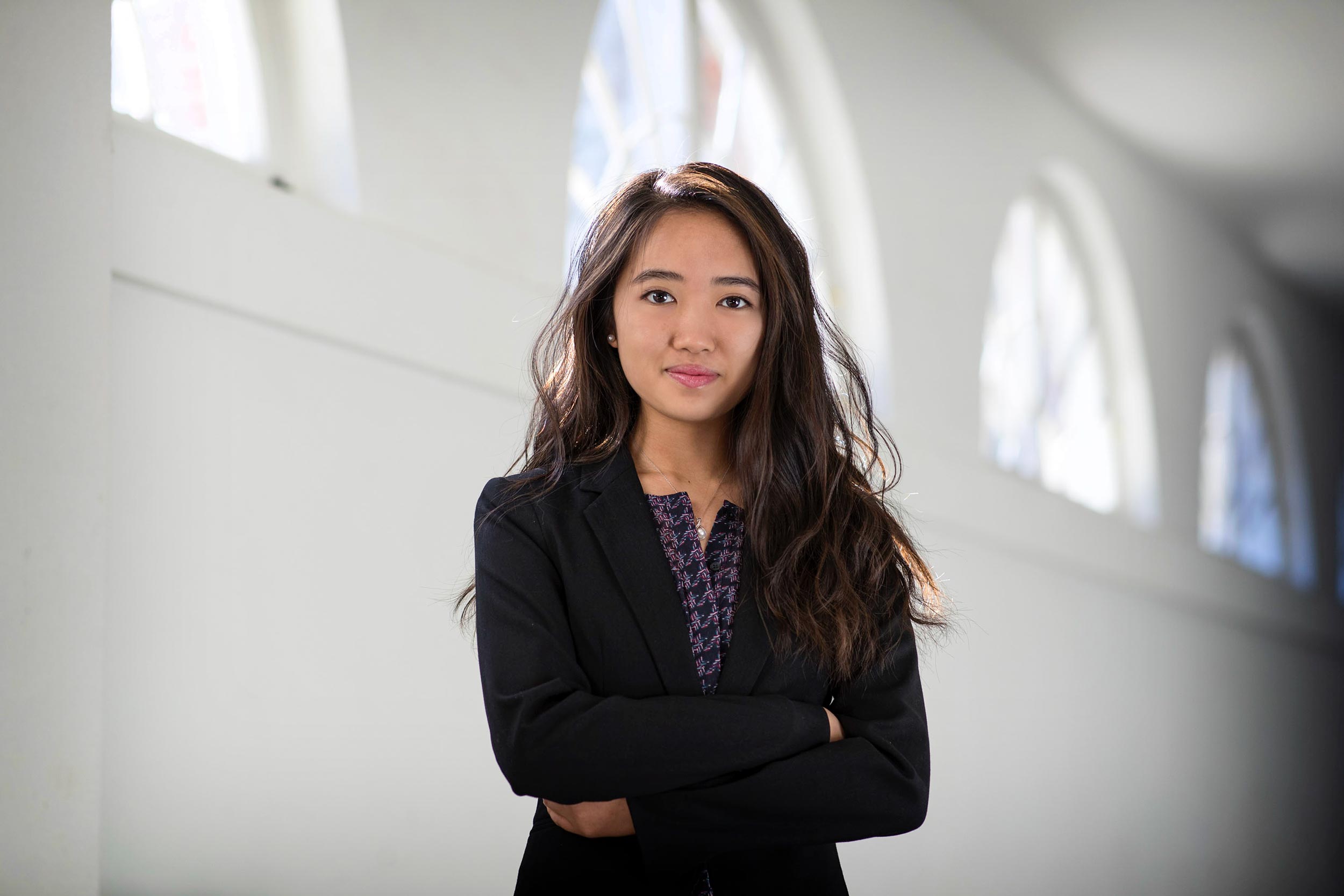Being homebound may mess with your positive outlook on life.
This is one of the conclusions University of Virginia student Joyce Cheng has drawn from her research on the quality of life of the homebound, funded by a 2018 Harrison Undergraduate Research Award.
Cheng, a third-year student in the human biology distinguished majors program, became interested in the topic through personal experience.
“I watched my grandmother deteriorate emotionally and physically as she battled and eventually succumbed to pancreatic cancer,” she said. “This motivates me to want to determine which factors are most imperative in influencing elderly people’s quality of life, so their condition can be improved.”
Cheng’s research indicated that it was possible for homebound people to maintain a positive outlook.
“Those who do engage in more personal relationships and hobbies seem to possess a more positive outlook on life,” Cheng said. “However, most patients were only able to leave their homes around one to three times per week, typically to go to the grocery store or doctor’s appointments. Transportation barriers also posed a larger problem for rural patients.”
Cheng, who plans to become a doctor, also cited the medical care available to older patients.
“Outings were especially tiring or painful for those with physical disabilities, and these feelings are exacerbated by long wait times in clinics and hospitals,” she said. “Increased accessibility to comprehensive, home-based medical care may benefit homebound patients by removing barriers to health care access and allowing them to feel more comfortable in their own homes. These observations are crucial for those working toward improving geriatric care.”
The Springfield resident conducted her research near the University.
“This past summer, I conducted interviews with homebound elderly individuals in Charlottesville and surrounding counties,” Cheng said. “I had the remarkable privilege of listening to them honestly describe their transitions to becoming homebound, and the challenges they faced in regard to their quality of life, social relationships, physical mobility and health care experiences.”
Cheng said that elder care is going to be even more important in the future than it is today.
“The proportion of elderly individuals is increasing globally, and even first-rate health care services may fail to address issues of personhood and deteriorating quality of life,” she said. “My work may help both researchers and physicians better understand the health care experiences and personal priorities of elderly homebound patients, informing the development of effective and empathetic home-based care.”
And it also remains personal to her.
“Through time spent with my grandparents, as well as through volunteering at nursing homes and assisted living facilities, I have developed close connections with elderly people and have a personal interest in their wellbeing,” Cheng said. “They have such interesting backgrounds, captivating stories to tell and invaluable wisdom to impart. Although health care is central to the lives of older individuals, I have realized that they are often underserved in our health care system in regard to their quality of life, mental health and happiness.”

Aaron Yao, assistant professor of public health sciences administration and Cheng’s mentor on her project, said she is a very proactive student who reached out to him after reading about his research in home-centered care and elderly care.
“She is gifted with many exceptional qualities that give her the ability to successfully conduct research, regardless of setbacks,” Yao said. “The ability to think forward is one of her qualities. She is driven by her strong vision and research mission.”
An Echols Scholar and a College Science Scholar, Cheng also received the 2018 George C. and Carroll F.M. Seward Scholarship (a College of Arts & Sciences Deans’ Scholarship), a College of Arts & Sciences Small Research and Travel Grant and the Laurie Lee Woolen Memorial Scholarship. A dean’s list student and recipient of Intermediate Honors, she chairs the College Science Scholars Council; is a program director for the Madison House Adopt-a-Grandparent Program; is vice president of Kinetic Sound, an instrumental music performance group; and a member of the Virginia Student Environmental Coalition. She volunteers as a classroom consultant with the Volunteers with International Students, Staff and Scholars Program and is a teaching assistant for organic chemistry. A graduate of James Madison High School in Vienna, she plans to become a physician and continue with clinical research.
“I would especially like to have a career that focuses on assisting and empowering disadvantaged and marginalized communities that do not receive adequate health care, such as minority groups, elderly populations, impoverished people or communities affected by environmental injustice,” Cheng said.
Media Contact
Article Information
March 5, 2019
/content/harrison-grant-student-studies-emotional-state-shut-ins-what-they-need

